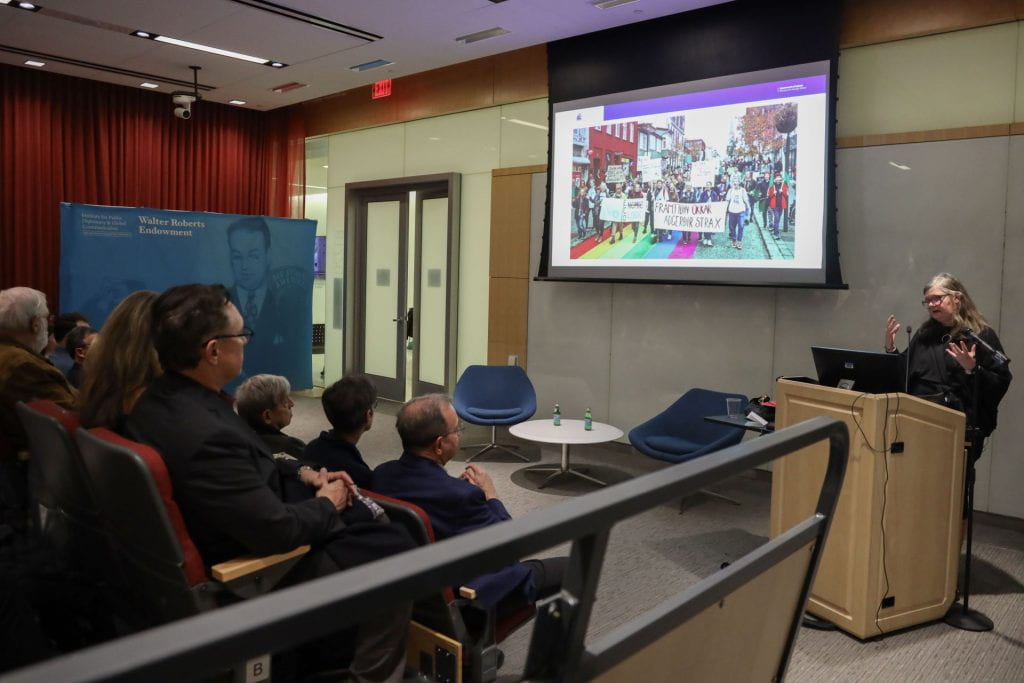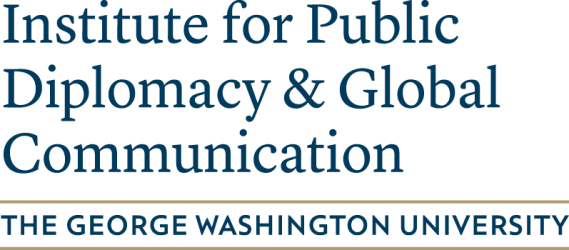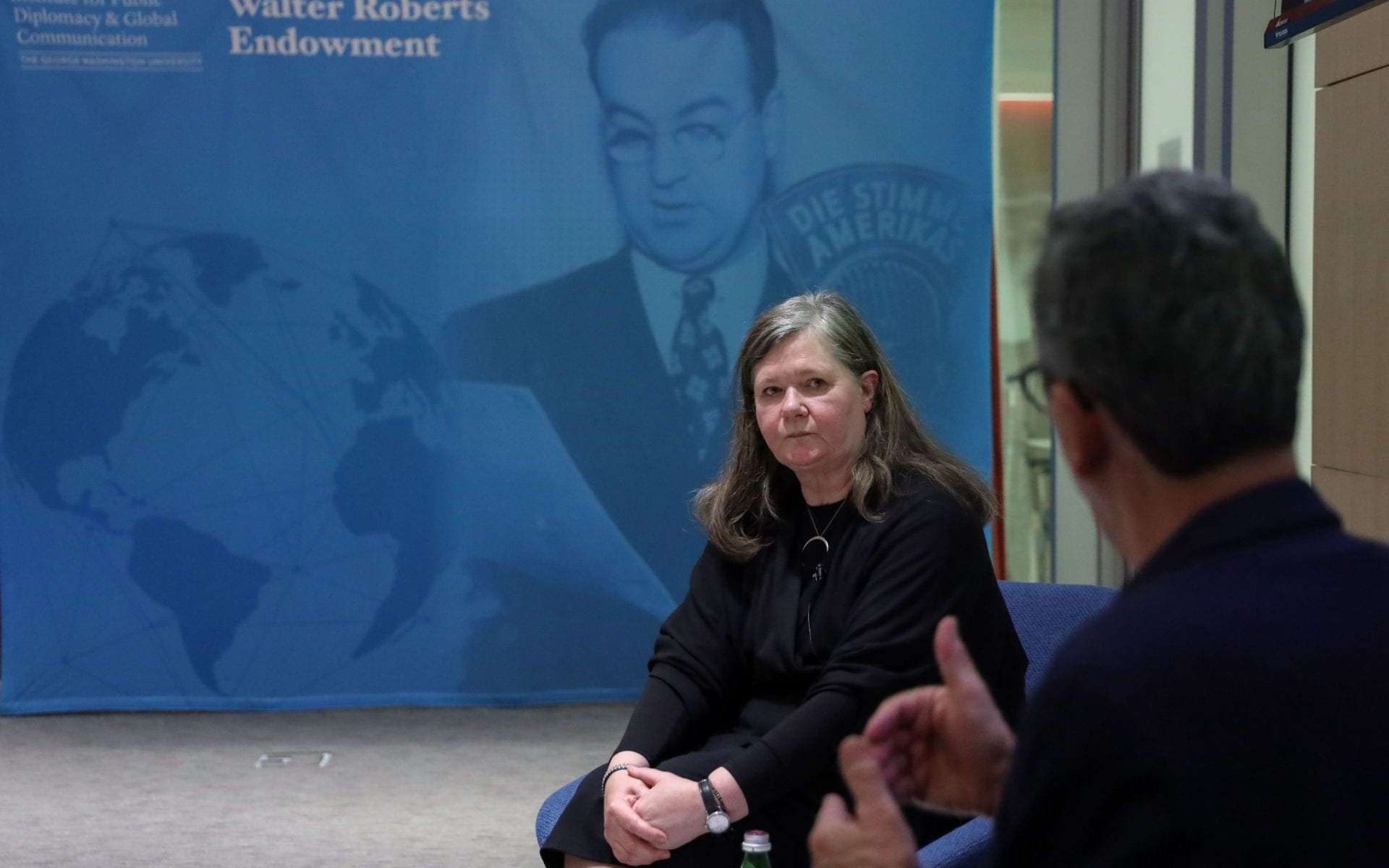Iceland’s Ambassador talks about the urgency to take on the challenges of climate change
By Alexis Posel, IPDGC Communications Assistant
At the 2023 Walter Roberts Annual Lecture, Iceland’s Ambassador to the U.S., Bergdís Ellertsdóttir, spoke on Iceland’s position on climate change, especially in the Arctic region.
She discussed the challenges that her country has faced advocating for climate change as the most pressing global issue. The Lecture was attended by an in-person audience at GW’s Lehman Auditorium at the Science and Engineering Hall, and live-streamed.
Photo (L-R): William and Patricia Roberts (representing the Walter Roberts Endowment), Ambassador Bergdís Ellertsdóttir, Frank Sesno, Executive Director of Planet Forward, and William Youmans, Director of IPDGC.

Titled “Climate Diplomacy: Communicating with Urgency”, the Lecture featured Ambassador Ellertsdóttir talking about Iceland’s energy development. Being one of the poorest countries in Europe, Iceland began with fossil fuels but started searching for more sustainable energy sources after World War 2. As the world’s largest green energy and electricity producer per capita, Iceland has been using renewable energy for over a century.

“We are powered by 100%. By renewable energy – geothermal and hydro. (It) made perfect economic sense, and…changed our (Icelanders) life drastically,” she said.
Ellertsdóttir noted: “But still, global warming is felt in Iceland, and we can see our glaciers melting. I can see it with my own eyes, I remember the way the glaciers looked when I first traveled. And what they are looking like now is a great difference. (Some) of them have vanished completely.”
The challenge for Iceland is to encourage these efforts on a global scale. Ellertsdóttir explained that the Icelandic government has been working to fulfill the goals of the Paris Agreement, … focusing on local municipalities, private companies, and rallying individuals in a collective effort to reduce emissions. The Icelandic Climate Action Plan calls for the country to be independent from fossil fuels by 2050, and carbon neutral before 2040. Currently, efforts are being made to cut greenhouse gases by 55% by 2030.
While she had hopes that research, innovation, and technology will help along the way, she said that governments must lead by example. In fact, current global conflicts show how important it is to focus on energy security.
In taking questions from the audience, Ellertsdóttir answered an undergraduate student, studying International Climate Policy at GW, who asked about public transportation and reducing private car use. “I’m a public transport person,” Ellertsdóttir admitted but noted “For me, it would have been a no-brainer to have like electric cars, electric buses from many, many years ago. (But) people are so attached to their cars… I mean, people get so angry if someone wants to take away the car.”
At the close of the Lecture, Ambassador Ellertsdóttir reminded all that climate action is a human rights and justice issue and needed to be inclusive – women and girls, indigenous groups, rural and urban communities all need to have a seat at the table. “We need champions for our planet”.
This Walter Roberts Endowment, event is organized by the GW Institute for Public Diplomacy and Global Communication with support from Planet Forward, an initiative to teach environmental storytelling to GW students.
Additional information by Yvonne Oh, IPDGC Program Coordinator.

